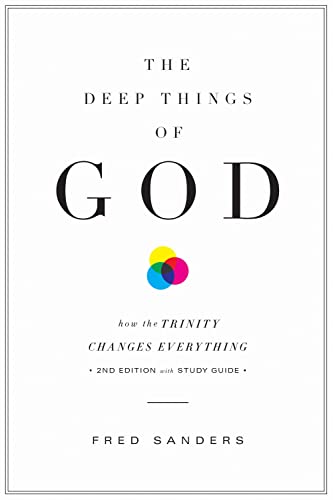The Shepherd Leader: Achieving Effective Shepherding in Your Church
Written by Timothy Z. Witmer Reviewed By Rhett DodsonWhen the Lord Jesus restored Peter to a useful place of service, he charged Peter with the responsibility to feed his sheep (see John 21). The image of the shepherd as a caring and wise keeper of the flock runs throughout Scripture as an endearing and enduring picture of the Lord and his servants. While all Christians confess that the Lord is their shepherd (Ps 23 and John 10), they also acknowledge that God has given under-shepherds (elders or pastors) to the church to be the caring keepers of God’s people (1 Peter 5:1–2). It is an awesome responsibility to be a shepherd in a local church. Any man who takes the task seriously knows that it is not an easy job, and he will welcome all the sound counsel and biblical wisdom he can find.
Thankfully Tim Witmer has given elders a guidebook that is biblically sound, pastorally sensitive, and practically useful. These three descriptions capture the three-part outline of the book. In the first section, covering the biblical and historical foundations of shepherding, Witmer surveys the relevant OT and NT (chs. 1–2) data. He then asks where all the shepherds have gone and provides an historical overview of the elder’s role from the second to the nineteenth centuries, from the Middle East to Europe to America (ch. 3). Witmer highlights the writings of Samuel Miller of Princeton and two Scottish ministers who developed thorough expositions of the elder’s work: Thomas Chalmers and David Dickson. Witmer concludes the first section of the book with a chapter on the elder’s authority (ch. 4). By and large, Western culture is opposed to authority structures. Yet shepherds are called to lead with authority. What kind of authority do they have? Witmer outlines five characteristics. An elder’s authority is (1) derived, (2) exercised for the well-being of the sheep, (3) directed by Scripture, (4) accountable to the Chief Shepherd, and (5) to be submitted to by the flock. Witmer concludes by looking at two abuses of authority in the “Shepherding Movement” and emerging church.
The second section of the book covers a comprehensive matrix for understanding the tasks of the shepherd-elder. Shepherds know the sheep (ch. 5), feed the sheep (ch. 6), lead the sheep (ch. 7), and protect the sheep (ch. 8). “These four functions address our most basic needs” (p. 102). Witmer develops his discussion of these four activities with sound biblical exegesis and applies the elder’s responsibilities on both macro- (church-wide) and micro-levels (personal). Witmer points out that it is important to understand this macro/micro-distinction because many elders think of their roles only on the macro- or decision-making level. True shepherding, however, also involves a micro-level where the elder is involved in people’s lives.
The final section covers three chapters that help the elders of a church put a shepherding plan together. Here Witmer covers the seven essential elements of an effective shepherding ministry. A shepherding ministry must be biblical, systematic, comprehensive, relational, include the four shepherding functions (knowing, feeding, leading, and protecting), and include accountability and prayer. In the closing pages of this chapter, Witmer’s application is probing and convicting. He writes, “It is sad to consider how much of the work of the Lord is carried out in our own strength, without seeking the Lord’s blessing. As leaders we are often called upon to lead the congregation in prayer publicly, but is our private prayer life as vital as it should be” (p. 221)? The final two chapters cover the implications of a shepherding ministry and suggestions for implementation (chs. 10–11). After the conclusion, Witmer includes several forms for elders to use to keep up with their tasks and an article on arguments against term-eldership by John Murray.
The basic thesis of The Shepherd Leader is that “the fundamental responsibility of church leaders is to shepherd God’s flock.” Too often elders see themselves as board members rather than pastors. Witmer’s book will go a long way in helping to correct that misguided notion. Witmer gets to the heart of the issue: God has called elders to exercise a biblical, loving, and caring ministry among his people. Elders are not just to make decisions; they are called to mold people into the image of Christ.
The Shepherd Leader is a wise, balanced, and useful tool for teaching and ruling elders no matter what denominational or non-denominational affiliation your church may have. It is a great resource for leadership training as well as an excellent refresher course for men who are already serving as elders. We are using it at Grace Church, and I encourage every pastor to do the same.
Rhett Dodson
Grace Presbyterian Church (PCA)
Hudson, Ohio, USA
Other Articles in this Issue
Most of our readers are theological students and pastors...
The Dazzling Darkness of God’s Triune Love: Introducing Evangelicals to the Theology of Hans Urs von Balthasar
by Stephen M. GarrettJürgen Moltmann observes that Christian theology and the Church face “a double crisis: the crisis of relevance and the crisis of identity...
Plots, Themes, and Responsibilities: The Search for a Center of Biblical Theology Reexamined
by Daniel J. BrendselIn the prolegomena to his “approach to biblical theology,” Charles H...
Since the mid-twentieth century biblical scholars have increasingly accepted that the texts of the Bible must be interpreted in terms of their literary genres...
The present age tends to regard polemics, theological controversies, and all-round doctrinal fisticuffs as, at best, a necessary evil, at worst, one of the most revolting aspects of Christianity...







